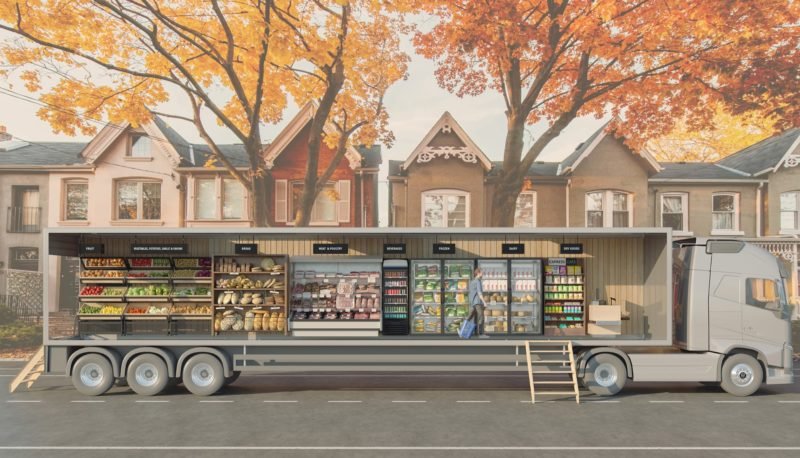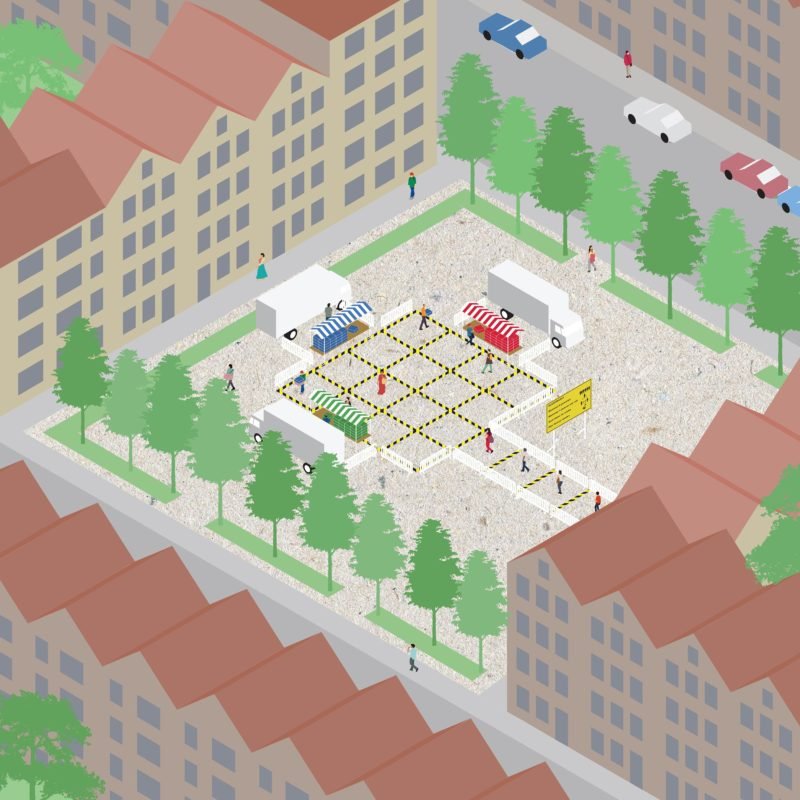The Supermarket Of The Future Is An Autonomous Vehicle
California-based startup Robomart might well be on its way to revolutionize online grocery shopping with the introduction of an autonomous supermarket that can drive itself to its customers.
In the coming years, more and more people across the world will buy their groceries online. Until 2025, the share of online grocery sales in the global grocery market is predicted to double to almost 10%, while a recent survey found that almost 60% of global consumers consulted were willing to try ordering their groceries online for home delivery. With their newly released product, Robomart could create a new category of grocery shopping that consumers might want to try out too.
Robomart is a mini van-sized grocery store on wheels that can drive itself to its customers. Using an app on their smartphone, consumers can simply order the Robomart that is closest to them whenever they want, much like one does with Uber and some bikesharing services. When the wheeled store has arrived at their doorstep, consumers unlock its doors with their phone and pick the products they want. When done shopping, consumers can just leave the store with their goods—the sensor-informed ‘grab-and-go’ checkout free technology that the Robomart is equipped with will trace exactly what products have been picked and charge buyers accordingly.
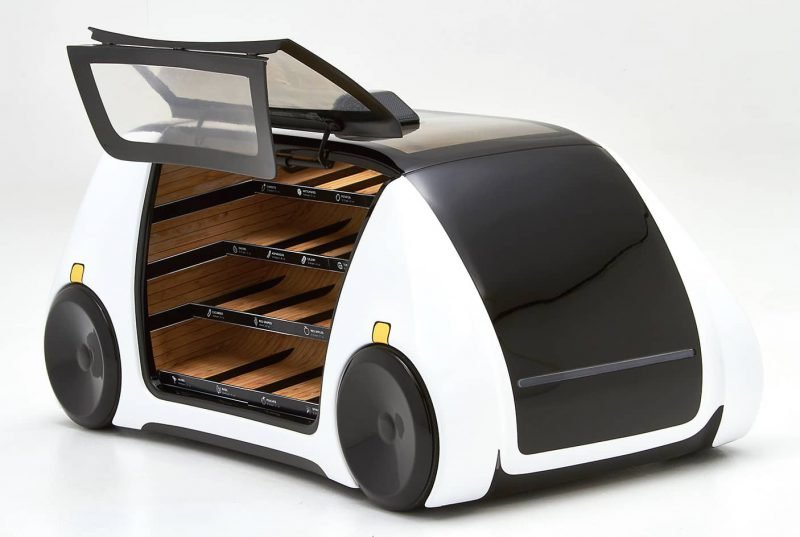
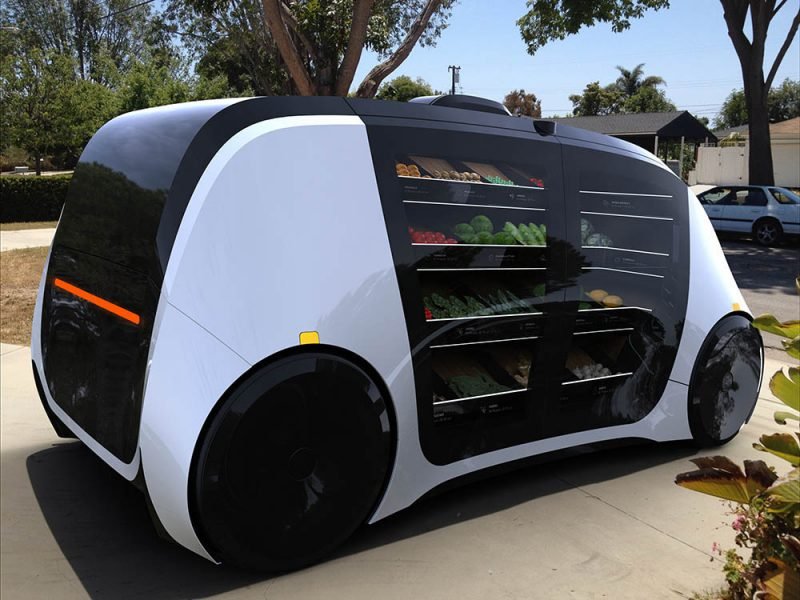
The Robomarts contain a number of shelves with different types of fresh produce, including fruits and vegetables. A cooling system ensures that these products remain fresh indeed. The display at the back of the store shows real-time stock level data and pricing information, so that the consumer knows what to expect before entering the store. Using LiDAR technology, a radar, and a number of cameras, the Robomart can operate completely autonomously, requiring no safety driver. This high level of autonomy is unprecedented for this type of service.
But why would consumers decide to do away with existing home delivery services for groceries offered by retailers or on-demand operators and choose to use a Robomart instead? According to research conducted by the startup, consumers feel more comfortable when they are able to choose fresh produce themselves instead of having them delivered by someone else. By literally bringing on-demand grocery shopping to their front door, Robomart offers consumers an opportunity to do exactly that.
Additionally, Robomart claims that this type of on-demand delivery is “more than five times cheaper on a per order basis” than current options. The main reason for this is that retailers, instead of hiring extra personnel or paying an external operator to deliver products bought online, can lease and operate the Robomarts for a two-year period, pocketing the delivery fee themselves. In this way, retailers “can expand their store footprint at low cost with no initial capital expenditure.”

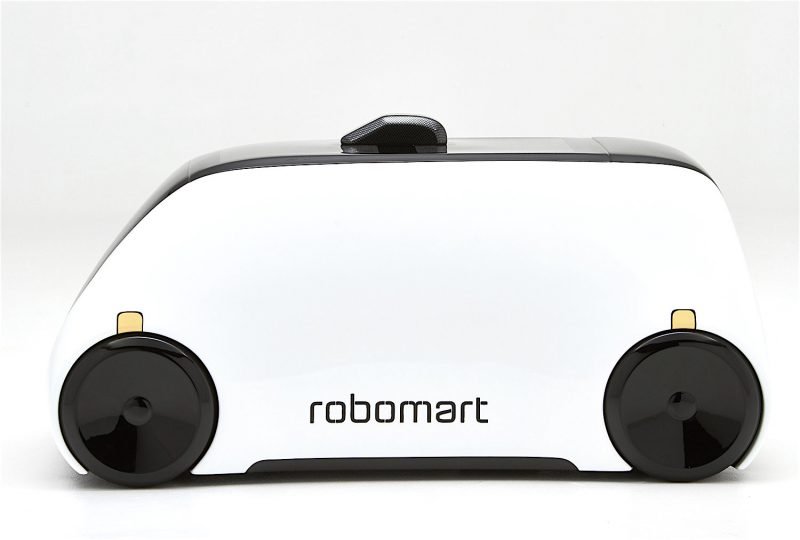
Arguably, this tech-savvy product could be an impetus for change in the online grocery shopping market. Yet, since Robomart is yet to release its fees for its service operation and test its self-driving grocery stores in a series of pilots planned for upcoming summer, it may be too early to speak of a revolution—at least for now.

